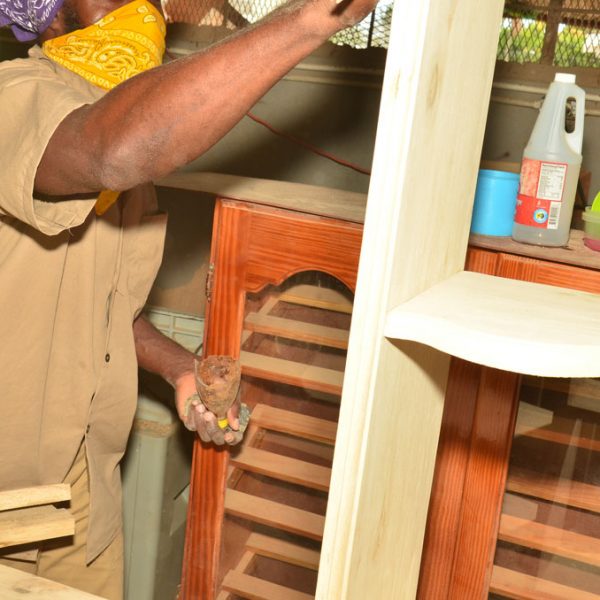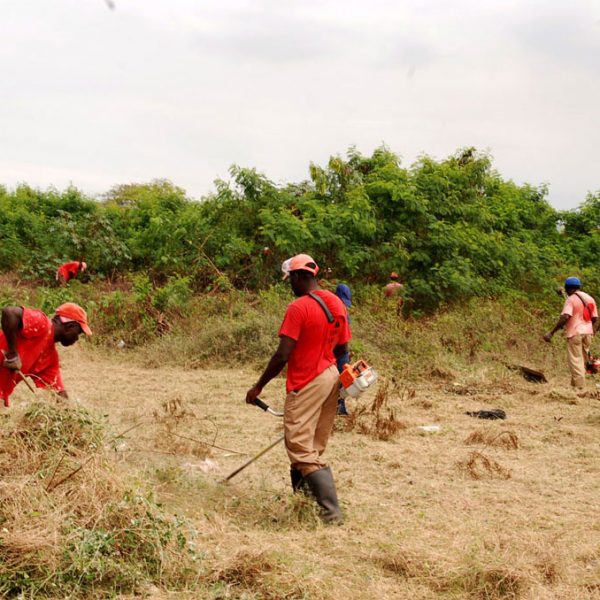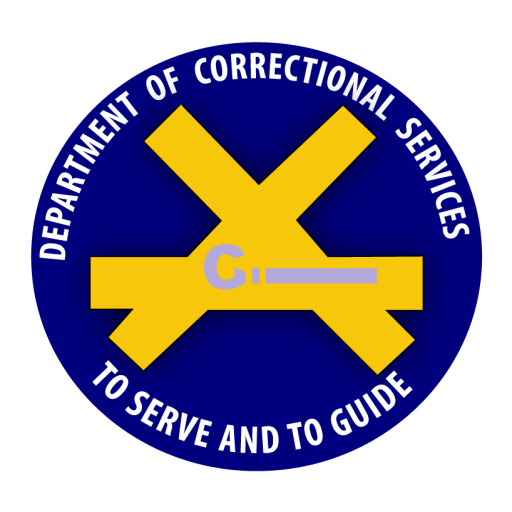POLICY FRAMEWORK
As a country we are guided by the objectives of Vision 2030 – Jamaica’s National Development Plan and so as a Ministry we devise strategies in tandem with same. In that regard the Ministry of National Security has devised a strategy that has five elements: Swift and Sure Justice, Social Development, Situation Prevention, Effective Policing and Rehabilitation and Redemption.
The Department of Correctional Services’ contribution fits squarely in the fifth element: rehabilitation and redemption. As a task therefore, we must redirect our inmates from a path of crime and in so doing, we must audit our inmates, educate them and impart a skill, then put them to work. The initiatives conceived and implemented must redound to the advancement of rehabilitation and redemption thereby reducing recidivism and giving hope for a brighter and prosperous tomorrow.


What is D.R.I.V.E?
Conceptual Areas for Implementation
- Furniture MakingThrough collaboration with the Ministry of Education (MoE), needy schools will be identified and inmates will make and donate desk/chair combos, chalkboards etc. to aid in the teaching/learning experience.This will be rolled out at the St. Catherine and Tower Street Adult Correctional Centers.
- Food ProvisionThis will be rolled out in the New Broughton Sunset Rehabilitation, Richmond Farm and Tamarind farm Adult Correctional Centers as they currently have Egg Production Projects in the former and vegetables in the latter.
- Mentorship by inmatesInmates who indicate a willingness to or passion for mentorship will be trained as mentors and will interact with remandees/wards in our centers as well as children in schools, in a bid to redirect them from a life of crime.
Target Group and Selection Criteria:
- Inmates
- Parolees
In the initial stages, the participants in the project will be selected based on the showing of interest however as the project becomes institutionalized, participants will be chosen based on attitude and aptitude for each components/service area. Inmates will also be trained in areas where there is deficiency in capacity.
In the initial stages Parolees will be the primary participants in the Mentorship Programme.
For continuity, Long-Term inmates will be considered/gives preference for the furniture making component.
BENEFICIARIES
- Schools
- Hospitals
- Golden Age Homes
PARTENERS
The MNS/DCS will seek to partner with local and international partners to provide human and material resources.
Funding will be sought from our international partners to acquire and Activity Centre off-site where parolees and some inmates will go to do furniture making to increase production levels.
Service Clubs will be engaged to provide Mentorship Training for our prospective mentors.
Thematic Area/Issues:
Reintegration and Recidivism
Entry-level job training, in the form of vocational rehabilitative outlet that gives inmates actual job skills they may use post – release. Based on DCS’ Annual Report, 2014 data records the Recidivism rate as 29% (re-entry only); 49% (non-custodial and re-entry). Research by Eric Jensen and Gary Reed has shown that inmates who obtained some form of education or vocational training routinely displayed reduced rates of recidivism.
What will be management structure of the initiative?
The project will be managed by the D.R.I.V.E Committee which will be chaired by Project Coordinator – DCS Special Projects and c0chaired by the Director of Rehabilitation – DCS. Each prospective beneficiary ( entity) will make a proposal for assistance to said committee who will then do an assessment, followed by a recommendation. Said recommendation will be communicated to the Commissioner of Corrections who will cause the engagement of the inmates in the project.
Items under each component will be provided as often as needs/resources allow. (A target number (annual) of desk/chair combos can be considered).
Making, each requested item will be supplied within two months of submission of recommendation.
All funds relating to the project will be placed in a special fund at the DCS and managed by the D.R.I.V.E Committee.
Monitoring and evaluation of the initiatives will be undertaken by the Research and Evaluation Unit of the MNS.
PILOT PROJECT
- Furniture MakingThrough collaboration with the Ministry of Education (MoE), needy schools will be identified and inmates will make and donate desk/chair combos, chalkboards etc. to aid in the teaching/learning experience.This will be rolled out at the St. Catherine and Tower Street Adult Correctional Centers.
- Food ProvisionThis will be rolled out in the New Broughton Sunset Rehabilitation, Richmond Farm and Tamarind farm Adult Correctional Centers as they currently have Egg Production Projects in the former and vegetables in the latter.
- Mentorship by inmatesInmates who indicate a willingness to or passion for mentorship will be trained as mentors and will interact with remandees/wards in our centers as well as children in schools, in a bid to redirect them from a life of crime.

